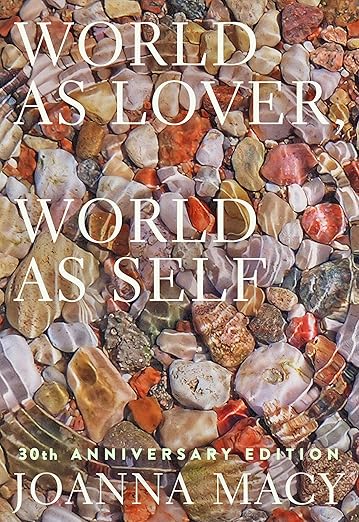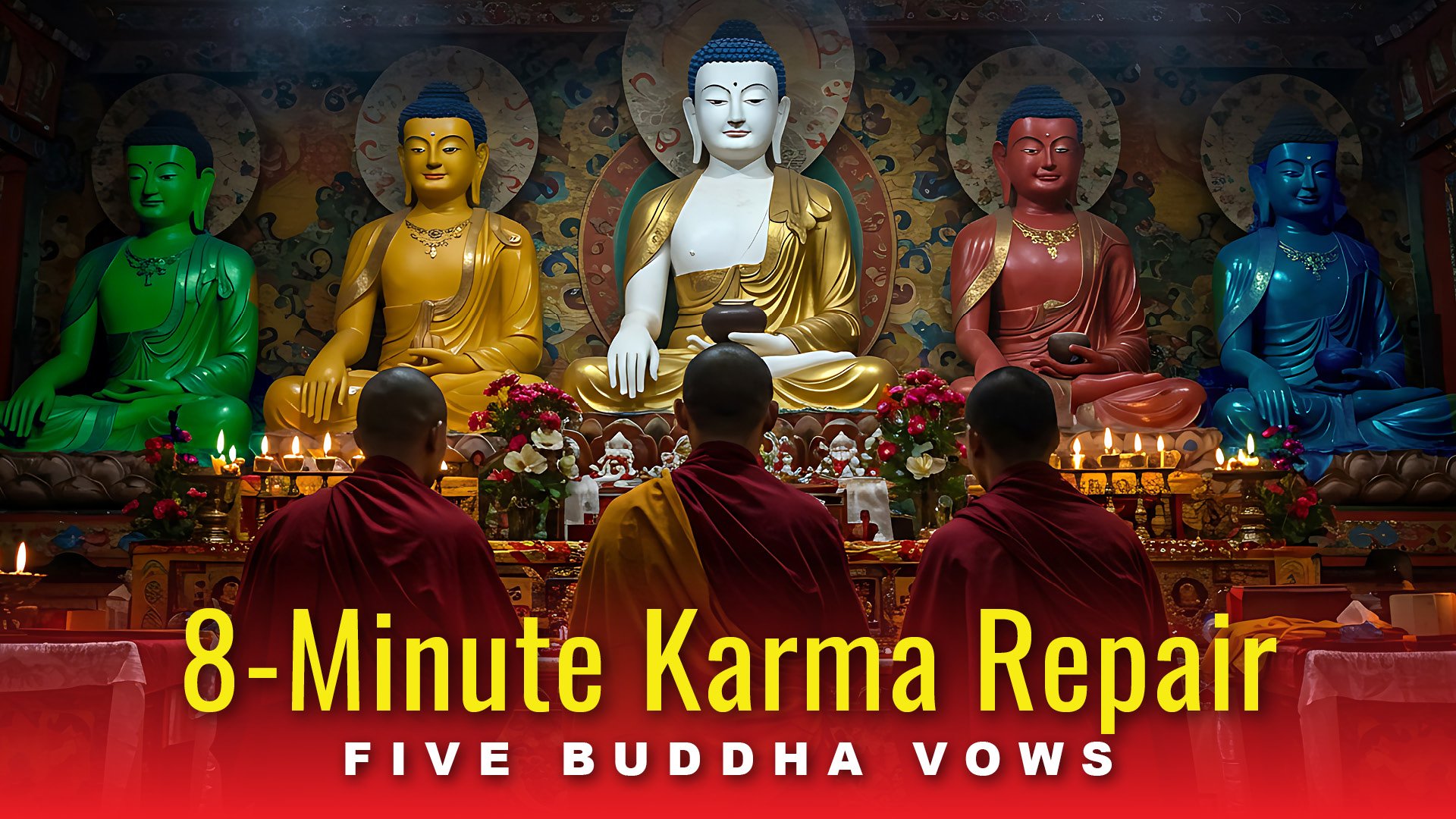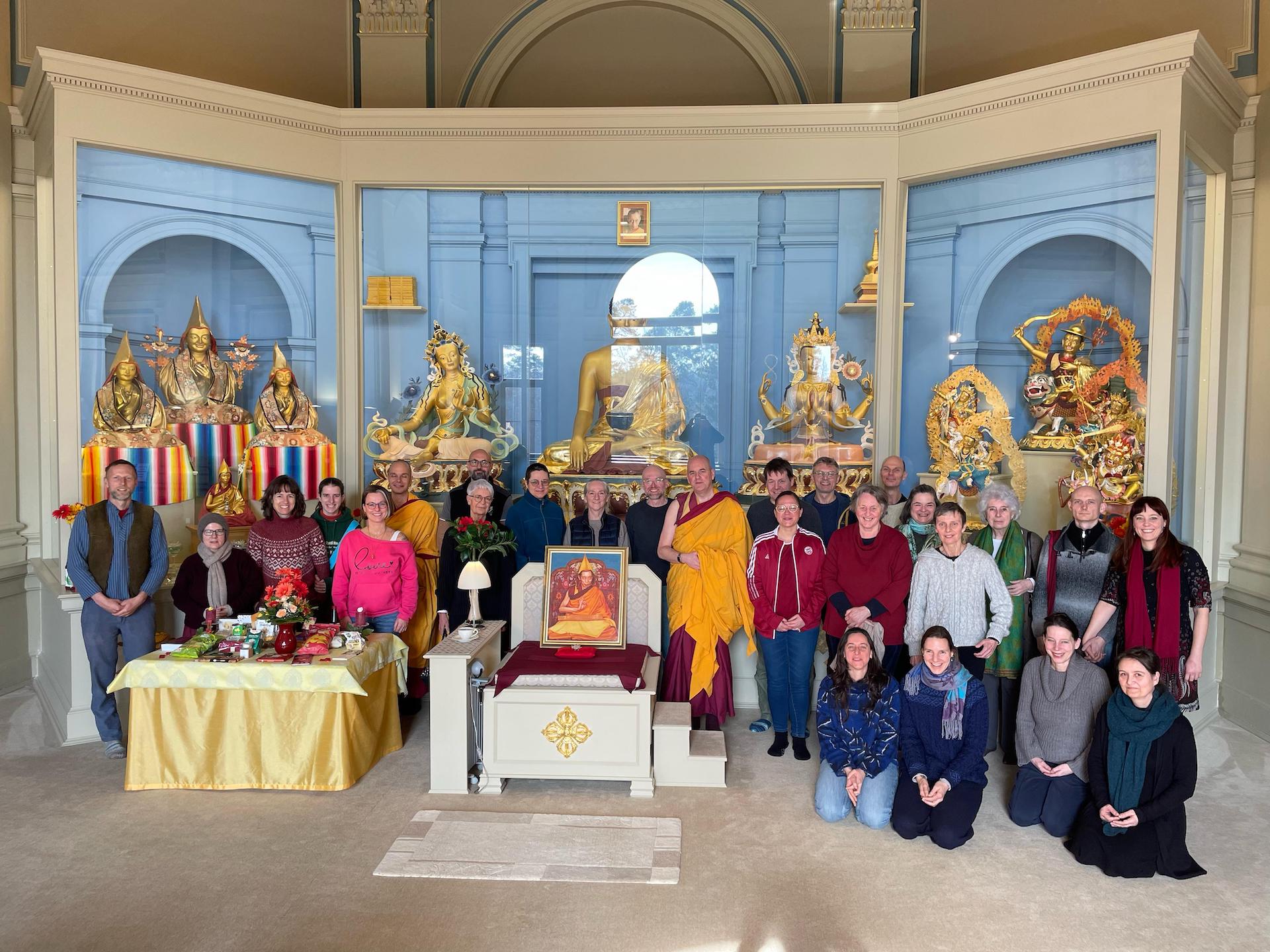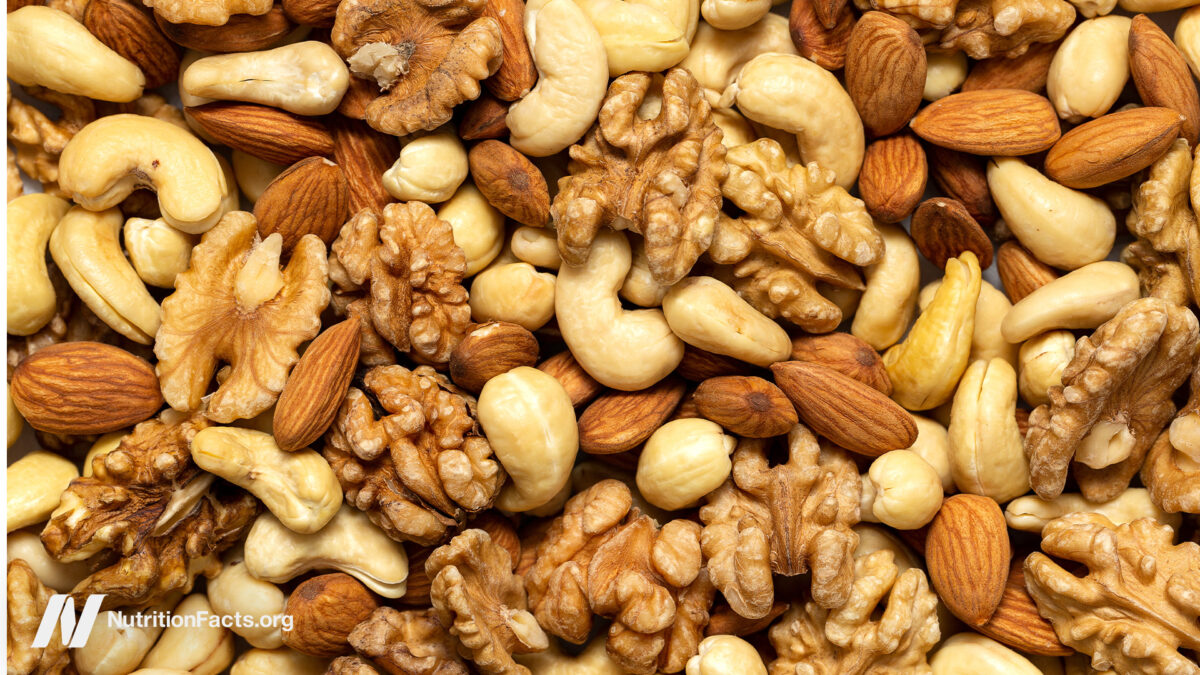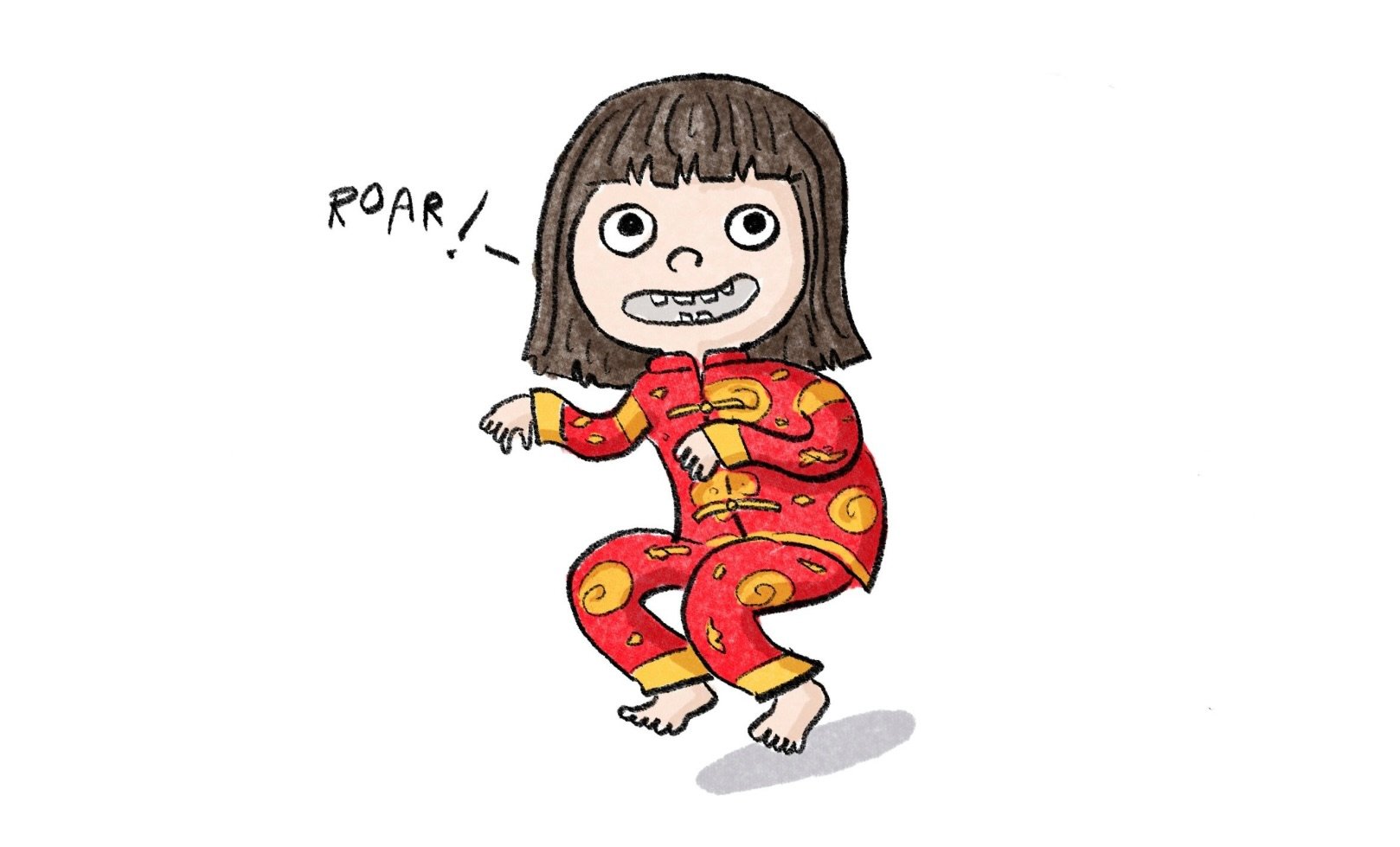Karma and the Energy of Will
In an excerpt from her landmark work, World as Lover, World as Self, the late ecodharma leader presents a powerful teaching on actively shaping one’s karma. The post Karma and the Energy of Will appeared first on Tricycle: The...

The concept of karma is often associated with belief in rebirth or reincarnation, a belief that was almost universally accepted in the culture of the Buddha’s time. Many questions addressed to the Buddha concerning the course of the spiritual life, and particularly the moral effect of deeds, were posed within the context of this widely held belief. The teaching of no-self raised problems: If the self is transient, how can it survive from one life to the next? And how can it be affected by previous lives?
Actually, the Buddha did not consider it useful to reflect on the possibility and character of other lifetimes. He said that if you really understand this causal law, you won’t run back to the past, thinking: “Did I live in times gone by? Or did I not? What was I in times gone by? How was I then? Or free from being what, did I become what?” Nor will you run toward the future, thinking: “Shall I be reborn in a future time, or shall I not? What shall I become in the future?” As he concluded, “These questions never arise, brethren, if by right insight [you] see things as they really are, both this causal happening and things as having causally happened”—a clear affirmation of dependent origination (Pali: paticca samuppada).
Yet, even focusing on this present incarnation, disciples often queried the Buddha as to who is responsible for the habits, sufferings, and pleasures we experience. One cannot say, he would reply, that “one and the same person both acts and experiences the result,” for the person is different, altered. There is continuity, but it inheres in the reflexive dynamics of action, shaping that which brought it forth.
The term karma is generally used to mean “action.” Early on, in pre-Buddhist literature, the word denoted ritual acts; then, by extension, it meant religiously ordained social duties. In the Buddhist texts, it is broadened to include all volitional behavior—bodily, verbal, and mental. This is what we are. As Pali scholar T. W. Rhys Davids points out, “Where others said ‘soul,’ Gautama usually said ‘action.’”
The effect of our behavior is inescapable, not because God watches and tallies, or an angel marks our acts in a ledger, but because our acts co-determine what we become. They do so by means of the volitional formations. These habits and inclinations condition the ways in which we interpret and react to things. The term sankhara means “put together,” “compounded.” Sankharas accrue from previous volitional acts and represent the reflexive or recoil effects of these actions—the tendencies they create, the habits they perpetuate.
Because the character of a person’s experience is affected by these formations, their identity is inseparable from what they do and think, and have done and thought. They are neither aloof from these acts nor their victim. They are their identity, continuity, and resource, as the Anguttara Nikaya declares.
My action is my possession,
my action is my inheritance,
my action is the womb which bears me,
my action is my refuge.
Liberation of the Will
By recognizing the creative interaction between past and present, the Buddha’s view of karma diverged from the more highly deterministic notions of karma current in his time. The Jains, for example, taught that every single act, regardless of its motivation or circumstance, inexorably bears its fruit. No spiritual progress can be made without personally undergoing all the consequences. Set in motion by the physical effects of deeds, karma represents a kind of substance or film, an obscuring accumulation that only can be worn away through expiation. This process of wearing away can be hastened by mortification of the flesh. The Ajivika view, also taught in the Buddha’s time, is even more deterministic. Considering every aspect of present experience—mental and physical—as the result of past action, it sees any human effort whatever as fruitless.
If karma cannot be changed, the Buddha said, “all effort is fruitless.” This he would not allow. He rejected determinist views of karma because of their crippling effect on human will. They provide, he said, “neither the desire to do, nor the effort to do, nor the necessity to do this deed or abstain from that deed. So then, the necessity for action or inaction [is] not found to exist in truth or verity.” This “desire to do, and effort to do”—in other words, our volition—modifies the effects of our past and broadens the scope for present endeavor. This emphasis on will is the most distinctive feature of the Buddhist concept of karma. The Buddha said, “Where there have been deeds, Ananda, personal weal and woe are in consequence of the will there was in the deeds.”
That is why the sankharas, which condition our perceptions and cognitions, are understood as “volitional formations.” Shaped by our desires, they carry forward the energy of the will. The power inherent in past acts resides in the choices that produced them.
A human existence is considered to be incomparably precious because intention is so important and choice so consequential. Beings in other realms of the wheel of life, such as animals, ghosts, and gods, experience pain and pleasure, but only human beings are understood as capable of making choices. Given the astronomical number of other forms of life, this human opportunity is seen as extraordinarily rare and valuable.
A human existence is considered to be incomparably precious because intention is so important and choice so consequential.
Since will determines the effect of acts, for good or for grief, it must be mobilized. Exertion is required. The early scriptures abound in exhortations to vigorous effort. Those who would “rise up from what is unskilled and establish [themselves] in what is skilled,” Buddhist practitioners are summoned repeatedly by the scriptures to be “intent on vigilance,” and “of stirred up energy, self-resolute, with mindfulness aroused.” One of the cardinal obstacles is thinamiddham, “sloth” or “lethargy.” By the same token, viriya (understood as “energy,” “resolution,” or “vigor”) is seen as essential to enlightenment and a cardinal virtue in its own right. This energy is in vivid contrast to the passivity and fatalism popularly associated with the notion of karma. Here will is primary, and it can be trained: “Wherefore, brethren, thus must ye train yourselves: liberation of the will through love we will develop, we will often practice it, we will make it a vehicle and a base, take our stand upon it, store it up, thoroughly set it going.”
In the early Buddhist view, then, a person’s identity resides not in an enduring self but in their actions, that is, in the choices that shape these actions. Because the dispositions formed by previous choices can be modified, in turn, by present behavior, one’s identity as choice-maker is fluid, one’s experience alterable. Affected by the past, one’s identity can also break free of the past.
A Systems View of Karma
Systems thinking has helped me understand the Buddha’s view of karma. Both bodies of thought see that what we do shapes who we are. Because the open system is self-organizing, its behavior cannot be dictated from without. External pressures can do no more than interact with the system’s internal organization. A person’s actions derive from their unique observations and reflections; unfolding circumstances bring ever new perceptions, conditions, and opportunities.
As political scientist Karl Deutsch says, in reference to the self-organizing of a conscious system: “Thanks to what it has learned in the past, it is not wholly subject to the present. Thanks to what it still can learn, it is not wholly subject to the past. Its internal rearrangements in response to each new challenge are made by the interplay between its present and its past.”
Meta-level reflections arise, bringing awareness of other choices that could be made, and because they do, the individual “could always have acted otherwise.” Deutsch goes on to say: “Each of us is responsible for what he is now, for the personality he himself has acquired by his past actions. . . . Nor are we wholly prisoners of any one decision or any one experience. Ordinarily, it takes many repetitions so to stock a mind with memories and habits that at long last lead to the same city, whether it be taken, in religious language, as the City of Destruction, or the City of Salvation.”
One is struck by the parallels to the Buddhist idea of karma and especially the sankharas—the memories and habits that “stock the mind.” The systems view, like the Buddhist view, does not see us as victims of our past, hapless pawns of forces and times beyond our reach; rather, as Deutsch continues: “It sees in the actual moment of decision only a denouement in which we reveal to ourselves and to others what we have already become thus far. Each step on the road to ‘heaven’ or to ‘hell,’ to harmonious autonomy or to disintegration, was marked by a free decision. . . . The determinate part of our behavior is the stored result of our past free decisions.”
A person’s actions derive from their unique observations and reflections; unfolding circumstances bring ever new perceptions, conditions, and opportunities.
Choice is so important because it actually constitutes what it means to be a person. To systems psychologist O. H. Mowrer, choice defines consciousness itself. “The eternal question is, ‘What to do? How to act?’ And consciousness, as I conceive it, is the operation whereby information is continuously received, evaluated and summarized in the form of ‘decisions,’ ‘choices,’ ‘intentions.’”
Through the operation of feedback, the behaviors we adopt and the goals we pursue take root in the psyche. They affect the ways we interpret experience, and these ways constitute who we are. Doer and deed co-arise. Hence our continuity of character, bearing the stamp of repeated choice and habit. Hence also our freedom, for new options arise with each present act of will.
Here then is the answer to our question, “Does it matter what we do?” It matters to the extent that we matter. Indeed, our acts matter—incarnate—in us, for they make us what we are. Though we fall into feelings of overwhelm or hopelessness, we can still choose to see what is possible.
This spells both grief and promise for the self we tend to posit and on whose behalf we tend to act. Because it is altered by each act, wise or foolish, fearful or brave, the self, even as decision maker, is doomed as an enduring entity. Constantly changing, it arises and passes. Yet in that very evanescence lies promise. For in the flow of perception and response, choices can be made that open broader vistas to perceive and know, wider opportunities to love and to act.
◆
From World as Lover, World as Self © 2021, by Joanna Macy, courtesy of Plum Village Community of Engaged Buddhism, dba Parallax Press, parallax.org.

 UsenB
UsenB 